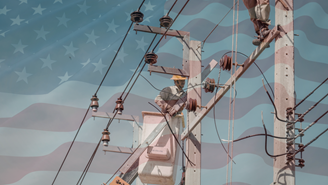Due to the success of anti-smoking campaigns and regulation, tobacco companies are increasingly struggling with a dwindling customer base. This has led to a wave of consolidation in an effort to maximize profits through industries of scale. As these behemoths gobble each other up and cigarette brands change hands, it leads investors to question what happens to the societal liabilities attached to them.
A recent legal dispute between Reynolds American and Imperial Brands brought this issue to the fore. Reynolds American sold cigarette brands encumbered with legal liabilities related to tobacco’s negative health impact to Imperial Brands. Now both buyer and seller are denying ownership of the obligations. This sets the stage for a protracted legal confrontation between the tobacco majors, with implications for future industry deals.
In June 2015, Imperial Brands was a third party to Reynolds’ acquisition of Lorillard. To appease US antitrust regulators concerned over the USD 25 billion consolidation, Reynolds agreed to sell USD 7.1 billion worth of Lorillard product lines to Imperial Brands. This included the sale of the Winston, Kool, Salem and Maverick brands.
The major US tobacco companies, Lorillard and Reynolds included, carry enormous legal burdens in the form of the 1998 Master Settlement Agreement (MSA). The culmination of years of litigation, it established that the companies make annual payments to the US state governments in perpetuity, compensating them for the added burden that tobacco consumption places on state healthcare systems. The annual payments are based on sales volumes and other factors, amounting to USD 2.4 billion for Reynolds and USD 4.5 billion for Altria in FY2015.
At the time of the purchase, Imperial Brands asserted that it acquired the Lorillard brands without acquiring their health liability. In its FY2015 reporting, Imperial Brands stated: “The American cigarette brands acquired in the year have been acquired without historic product liabilities and with an indemnity from Reynolds in respect of any liabilities relating to the period prior to acquisition.”
Now, Reynolds and Imperial Brands are both denying ownership of the health liability. In February 2017 the Florida attorney general filed an enforcement action against the two companies, demanding that one or both companies submit outstanding MSA payments to Florida and take ownership of the perpetual liability. Reynolds claims that its MSA obligations in Florida ended with the sale, while Imperial Brands claims that the obligations never transferred in the sale. It is unclear who will end up with the liability and whether the dispute will be replicated in other state jurisdictions. This case indicates that health liabilities are generally underappreciated during acquisitions, which may well translate into added expense when tobacco majors aim their legal resources against one another.
As investors and other stakeholders engage with tobacco companies on mergers, some basic questions can be considered: How is outstanding product liability priced into the transaction? Will this transaction constitute a net increase or a net decrease in the company’s exposure to product health issues? Overall, what is management’s strategy to reduce the company’s risk exposure derived from tobacco health impacts? Although companies may try to evade their obligations, the societal impact is a fundamental part of the current business model. Unless companies diversify into products with less inherent harm, high risks will remain.
Source: Sustainalytics Research 2017
Our controversy research tracks the fines, lawsuits, and public criticism facing tobacco companies over their product health impacts. The above graph summarizes the number of related incidents each company has experienced over the past three years. Reynolds currently faces significantly higher controversy than Imperial Brands, but stands to offload some liability to Imperial Brands if it succeeds in this dispute.




